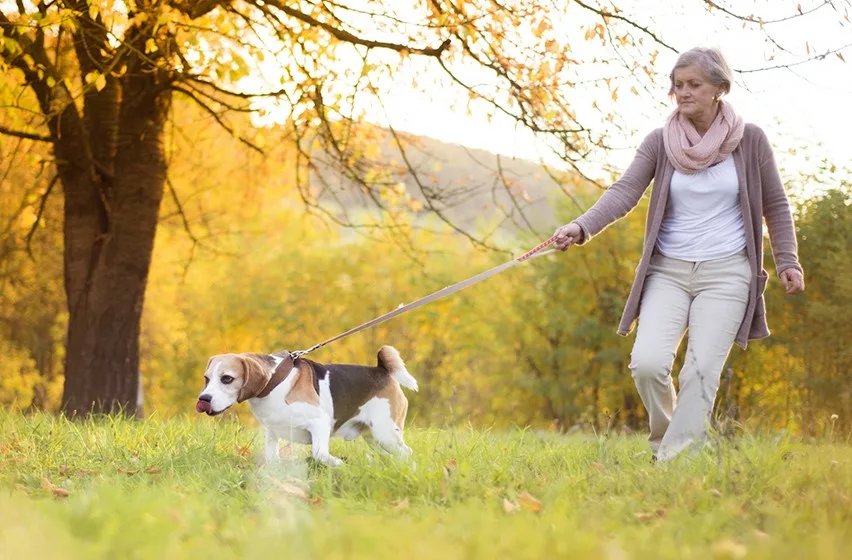
Dog Obedience Classes for Deaf Dogs: A Must for Your Pup?
Share
When it comes to **nurturing** the bond between you and your beloved pet, understanding and communication are crucial. With the rising interest in dog obedience classes for deaf dogs, health-conscious pet owners have a newfound path to foster those connections and ensure a harmonious living environment. Whether you're a seasoned **dog** owner or a newbie who has recently taken the leap into pet parenthood, understanding the needs of a deaf dog is paramount.
A deaf dog's worldview is vastly different from that of a hearing dog, but with the right training, they can be just as obedient and joyful. Embracing dog obedience classes designed specifically for deaf dogs can make a substantial difference.

Why Deaf Dogs Benefit from Specialized Obedience Classes
**Deafness** in dogs, whether congenital or acquired, changes their perception of the world. They rely more heavily on **sight** and **touch**. As a result, traditional training methods may fall short. Specialized obedience classes teach unique visual and tactile signals to ensure clear communication.
Training such as this not only helps your dog respond appropriately but also enhances the bond between you two. According to experts at Blue Cross, consistent training with customized signals can significantly improve a deaf dog's quality of life.
What are Dog Obedience Classes?
Typically, dog obedience classes cover the essentials of canine behavioral instruction, from basic commands like sit, stay, and come to more advanced problem-solving techniques. However, when we focus specifically on **deaf dogs**, the approach is finely tuned to accommodate their unique learning abilities.
This means a greater emphasis on visual commands, such as hand signals, and utilizing tools like vibrating collars to get their attention. Learn more techniques in our post on dog barking at noises, to reduce stress for your pet.
Crafting Personalized Training for Your Deaf Dog
Before selecting a class, consider your dog's specific needs. Consult a professional to create a tailored training program combining hand signals, movement cues, and mutual understanding. Partner with an expert trainer who understands deaf dogs' nuances and can incorporate methods that resonate with your dog's sensory experience.
We discuss more about training at Care Credit's Dog Training Guide, where you'll find substantial resources on accommodating specific needs.
Choosing the Right Obedience Class
Not all dog classes will fit the unique needs of your deaf pup, which is why it's crucial to do your due diligence. Look for trainers who specialize in deaf dogs, ensuring your pet receives the empathetic and informed attention it deserves.
Before signing up, consider a trial period to gauge the class's effectiveness. Explore reviews and testimonies from other dog owners to ensure it's the right fit for your furry companion. For personalized needs, you might find our insights on senior dog classes helpful, as they share methods designed for specific dog situations.
Benefits of Specialized Training
Enlisting in a tailored obedience class yields abundant benefits. Expect improvements in your dog's confidence, enhanced safety via reliable non-verbal communication, and increased bonding between you and your dog. Additionally, these classes can aid in socialization by helping your deaf dog interact with people and other dogs comfortably.
These programs pave the way for a more enriched and fulfilling life for your dog, allowing versatility in responding to your cues and navigating the world safely and confidently. Our Masterclass on Dog Training Guide offers deeper insights into advanced obedience techniques.
Comparing Deaf Dog Obedience Classes to Traditional ones
Traditional obedience classes primarily focus on verbal commands and auditory cues, which can be ineffective for deaf dogs. On the contrary, classes designed for deaf dogs pivot towards visual learning techniques and other sensory-rich methods. Hand signals replace voice commands, encouraging clearer communication and understanding.
This comparison also extends to the use of tools and devices in training. For instance, trainers might use textured toys or low-frequency sounds that deaf dogs can feel rather than hear. Such methods allow more inclusive, accessible training experiences for deaf dogs.

FAQs
How are obedience classes for deaf dogs different?
These classes focus on visual cues, hand signals, and touch to communicate commands, contrary to traditional auditory-focused methods.
What is the first step in training a deaf dog?
Begin by understanding your dog's baseline skills and comfort levels, then design a personalized training plan utilizing hand signals and visual cues.
Can an older deaf dog learn new commands?
Yes, with patience and the right techniques, older deaf dogs can successfully learn and adapt to new commands.
In conclusion, **dog obedience classes** for deaf dogs offer a structured, supportive environment that fosters communication, safety, and enjoyment for you and your furry friend. As a conscientious pet owner, investing in specialized classes can revolutionize your training efforts while enhancing your dog's overall well-being. Should you need further guidance, consider visiting our other posts on stress-reducing activities for more enriching experiences for your pet.
This article contains affiliate links. We may earn a commission at no extra cost to you.
